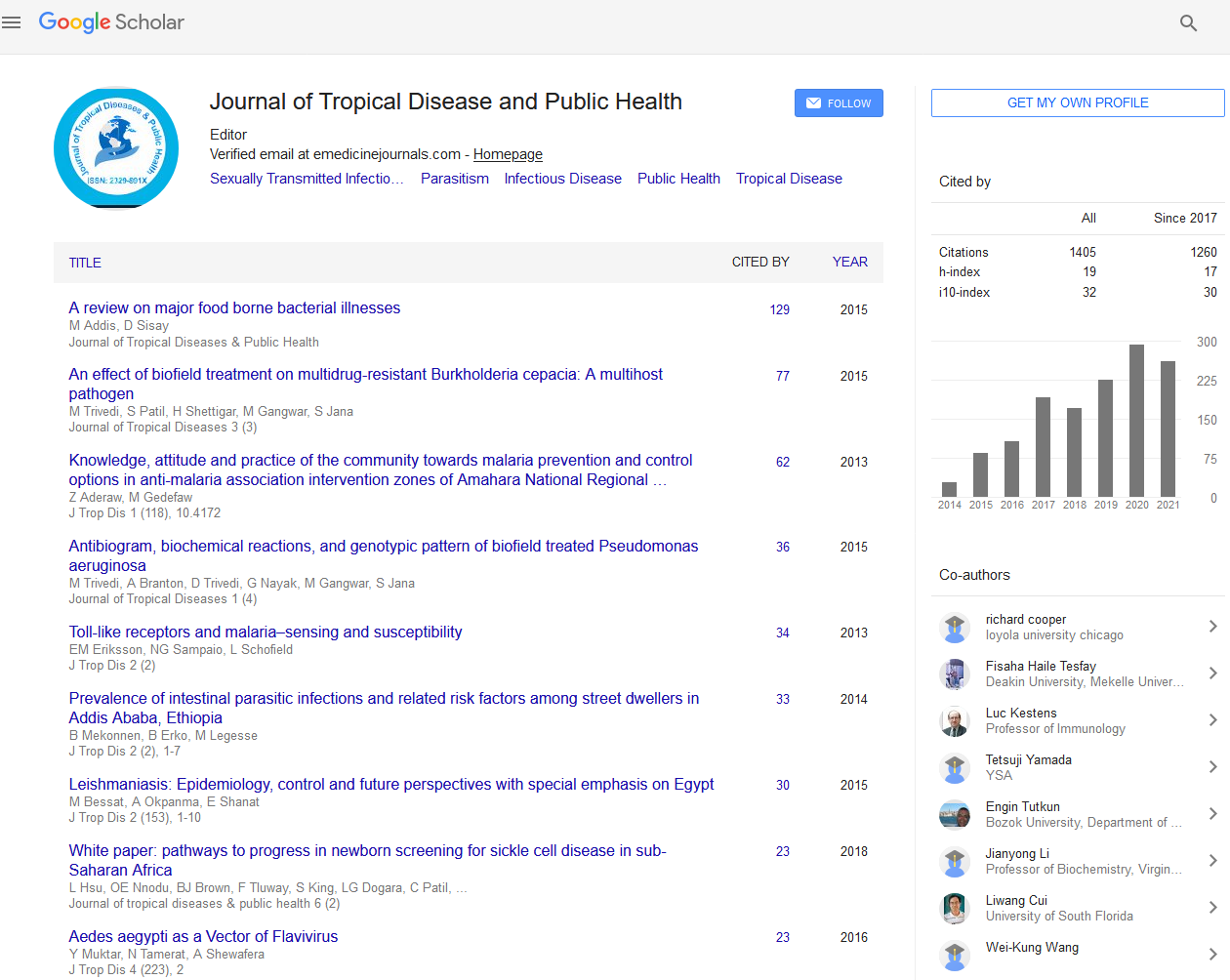Indexed In
- Open J Gate
- Academic Keys
- ResearchBible
- China National Knowledge Infrastructure (CNKI)
- Centre for Agriculture and Biosciences International (CABI)
- RefSeek
- Hamdard University
- EBSCO A-Z
- OCLC- WorldCat
- CABI full text
- Publons
- Geneva Foundation for Medical Education and Research
- Google Scholar
Useful Links
Share This Page
Journal Flyer

Open Access Journals
- Agri and Aquaculture
- Biochemistry
- Bioinformatics & Systems Biology
- Business & Management
- Chemistry
- Clinical Sciences
- Engineering
- Food & Nutrition
- General Science
- Genetics & Molecular Biology
- Immunology & Microbiology
- Medical Sciences
- Neuroscience & Psychology
- Nursing & Health Care
- Pharmaceutical Sciences
Abstract
A Sero-epidemiological Survey of Brucellosis, Q-Fever and Leptospirosis in Livestock and Humans and Associated Risk Factors in Kajiado County- Kenya
Nakeel MJ, Arimi SM, Kitala PK, Nduhiu G, Njenga JM and Wabacha JK
Animal and human health is inextricably linked. People depend on animals for nutrition, socio-economic development and companionship. A cross-sectional serological study was carried out to determine the seroprevalence of three related zoonotic diseases namely Brucellosis, Q-fever and Leptospirosis in cattle, sheep, goats and humans in three sub counties of Kajiado County. In addition the risk factors associated with sero-positivity in animals and humans were assessed. A total of, 250 (cattle), 167 (sheep), (167) goats and 317 (humans) samples were collected. Serum samples were screened for brucellosis using Rose Bengal Plate Test (RBPT) and thereafter a total of 400 samples from all the four species (all the positive on RBPT and other randomly picked samples) were subjected to cELISA (COMPELISA, VLA, UK) test. Results indicated a low prevalence of brucellosis in humans 1.3% (2/150) but a higher prevalence of Q-fever 26% (24/90). The overall prevalence in livestock was 12.91% (27/209) and 79.3% (249/314) 21.8% (54/248) (in cattle only) for brucellosis, Q-fever and Leptospirosis respectively. The prevalence estimates in cattle, sheep and goats were 21.92% (16/73), 8.6% (6/69) and 7.3% (5/67) for brucellosis respectively and 89.7% (140/156), 57.5% (46/80) and 83.1% (69/83) for Q-fever respectively and 21.8% (54/248) for Leptospirosis in cattle only, indicating a high risk of transmission of the diseases to humans through contact and/or consumption of livestock products such as milk. The study and the data obtained therefore indicates that the two zoonotic diseases brucellosis and Q-fever maybe enzootic in the study area in human, cattle, sheep and goats, while leptospirosis is present in cattle and presents a serious public health problem among the inhabitants of the county and that there is need to create awareness among all concerned on the likely high prevalence of the two diseases to avoid misdiagnosis and suffering of patients. It is recommended that the veterinary personnel in Kajiado County make an effort to investigate all cases of abortions and retained placentas that are included in their disease surveillance reports.


